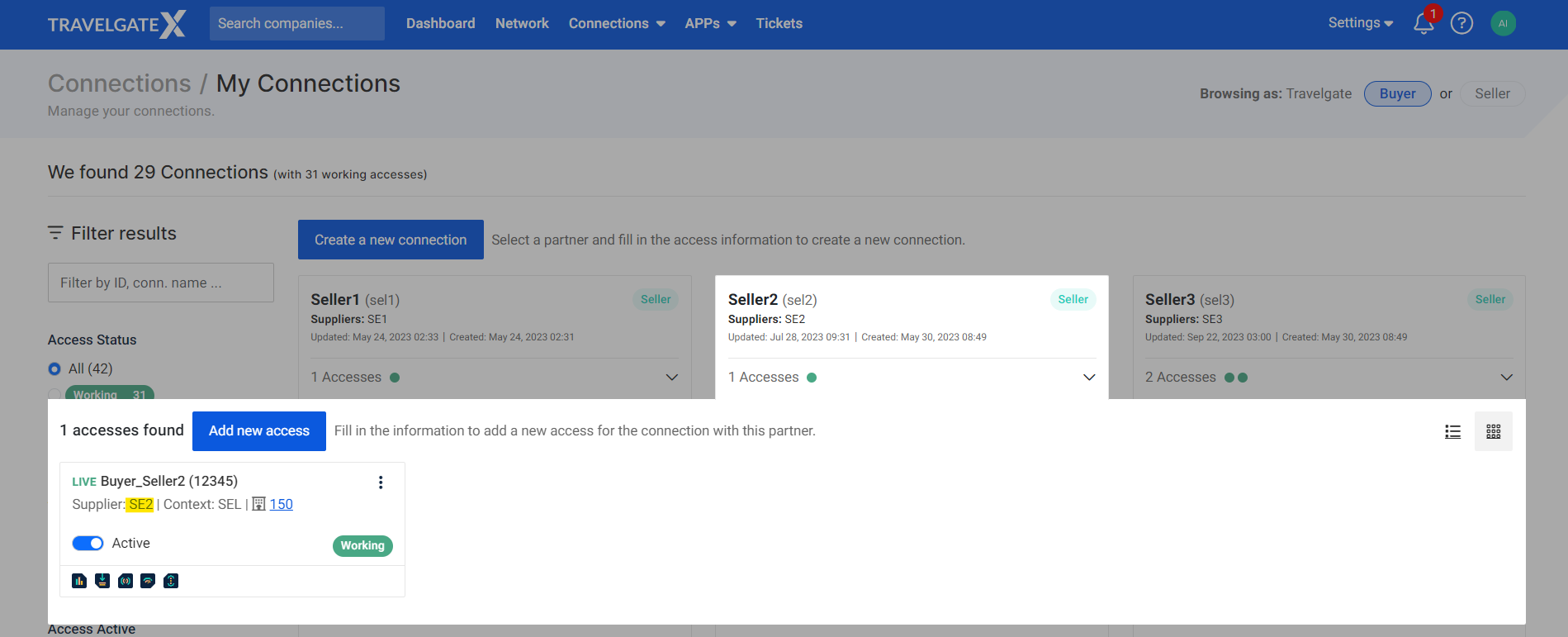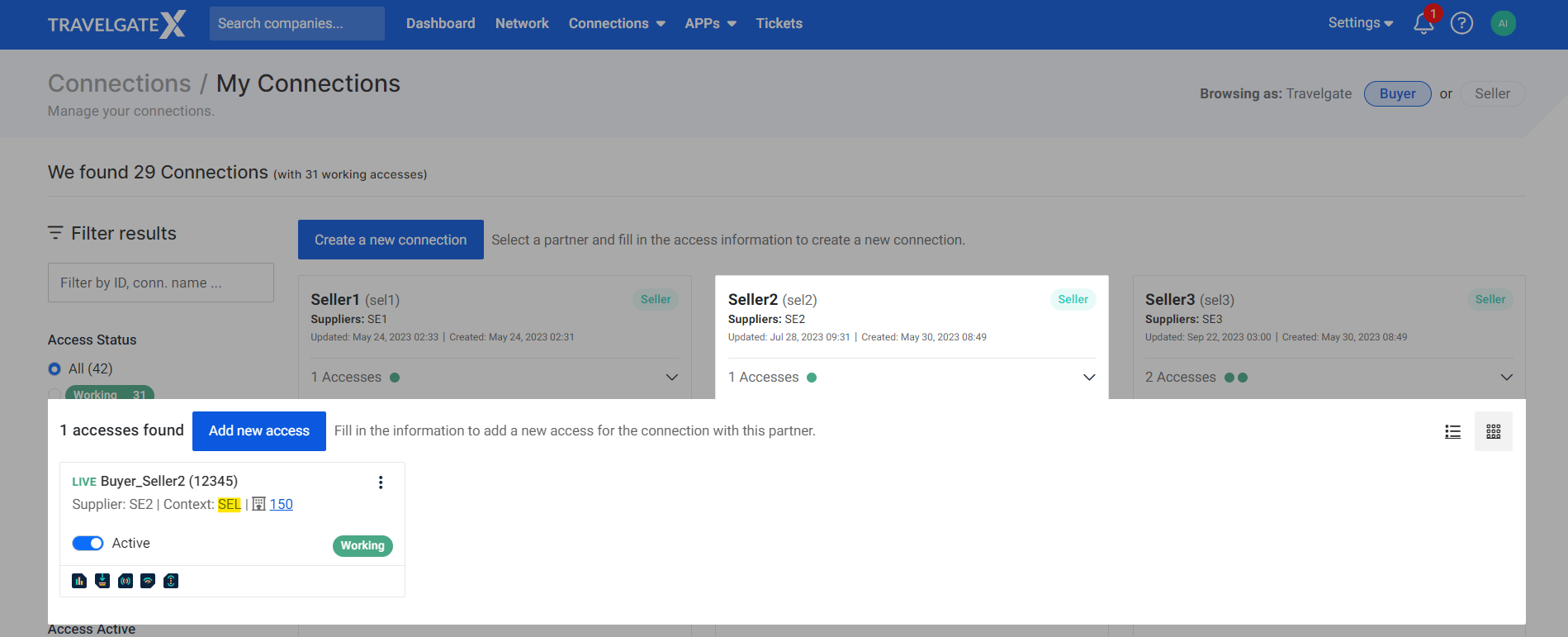Key concepts
In order to successfully embark on the journey of finding and booking hotel rooms through the Travelgate APIs and APPs, it is essential to familiarize yourself with a few important concepts. By understanding these fundamental ideas, you will gain the necessary knowledge and skills to navigate through this process effortlessly.
Seller
A Seller uses the Travelgate platform to sell travel services such as hotels for their customers. Sellers include DMCs, Hotels, Channel Managers, Tour Operators, niche travel service providers etc.
Supplier
A supplier refers to the API integration used by the Seller to establish a connection, enabling the Seller to offer accommodation services. Each supplier is assigned a unique supplier code, which serves as a distinct identifier. It's important to note that one Seller can have multiple supplier codes. For instance, a Seller might have separate supplier codes if they provide their product via both PULL and PUSH integrations at the same time.

Buyer
A Buyer uses the Travelgate platform to book travel services such as hotels for their customers. Buyers include Travel Agencies, Tour Operators, Tech Platforms etc.
Client
A client is a tag or label that Buyers use to categorize their traffic. The client is the entity that purchases accommodation services via the Hotel-X API. These codes also ensure that the business has a designated configuration assigned to it.
You can have multiple client codes, for instance, to separate traffic for B2B and B2C (e.g., client_b2b, client_b2c). All accesses work with any client code, so choose according to your needs. You can find your client on the Travelgate website in Connections > API Settings.

Context
Context is a term used to describe the content codes used by both Buyers and Sellers. Every Supplier has their own unique context, which consists of specific codes for items like hotels, boards and rooms. Travelgate provides its own standardized context, called FastX, which contains unique Travelgate codes for hotels, boards, and rooms. Buyers integrated through Travelgate use these codes throughout the booking flow to access and interact with the Marketplace. These unique codes simplify mapping for Buyers, they only need to understand FastX codes to connect to any Supplier in the Marketplace, without having to map each Supplier's codes individually.
While FastX codes are the codes used in the Marketplace, Travelgate remains fully transparent and Supplier codes are still available and returned in the API responses within the Supplier’s context.

Access
An access is the set of credentials and the authentication configuration that enables a Buyer to connect to a Seller. It is used to differentiate among Sellers and also to filter different credentials and configurations from the same Seller (e.g. B2B and B2C feeds).
For Hotel-X implementation and testing purposes, we recommend using the following accesses:
- TG Test Seller:
Access2 withcontextHOTELTEST - Smyrooms Test:
Access5647 withcontextLOGITEST
These have already been activated on your account and are ready to use.

API Key
An Apikey is a unique alphanumeric code that serves as a form of authentication required for accessing Hotel-X API. This key must be included in the HTTP Authorization request header to verify and authenticate the user agent with the server. It acts as a secure identifier, ensuring that only authorized users can make requests and access the API's functionalities. You can find your Apikey (encrypted) on the Travelgate website in the API Keys section.